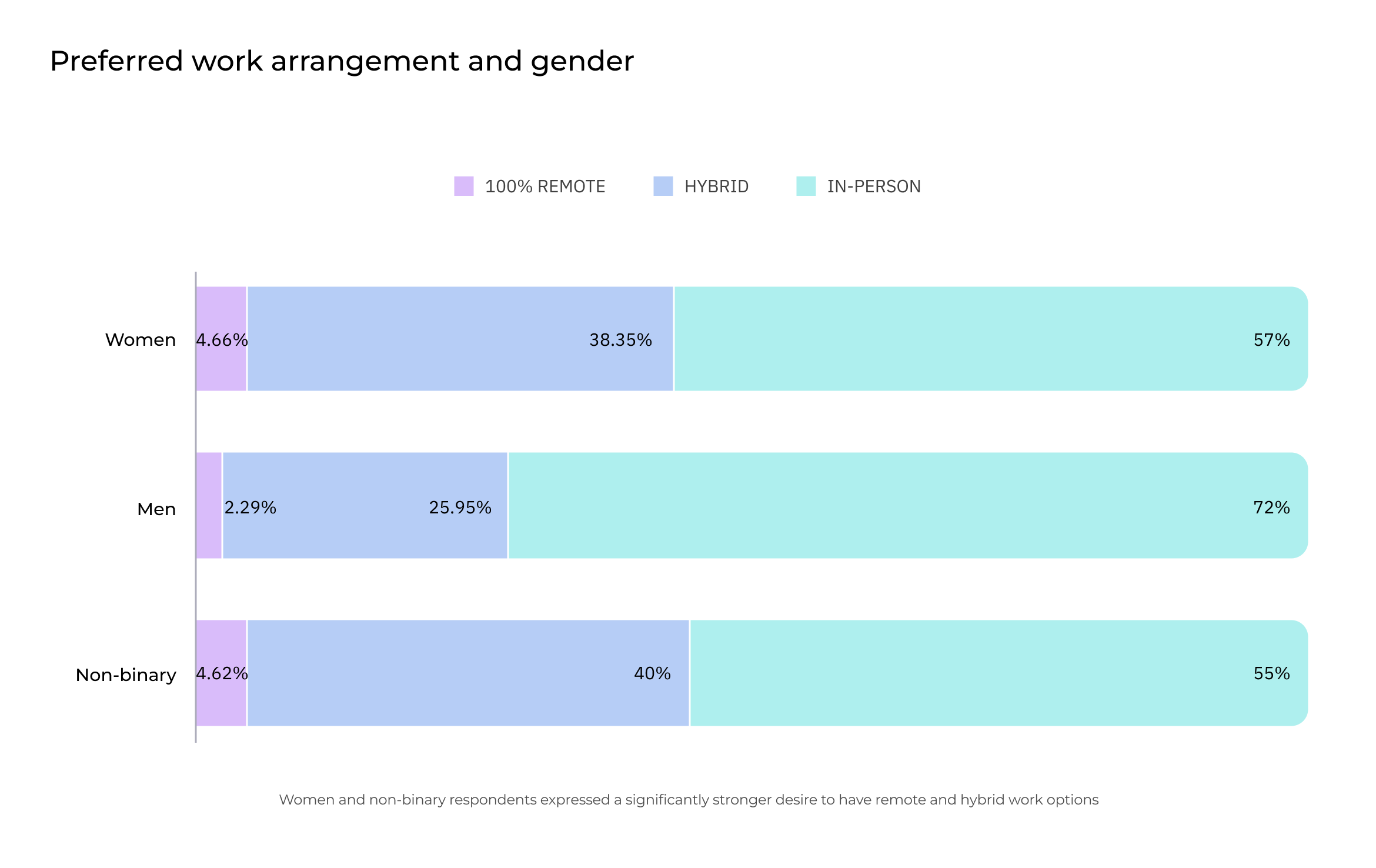Galaxy Vets study reveals rise in preference for remote and hybrid work environments
Findings suggest that hybrid practice models could help advance veterinary medicine and reduce overall burnout
Galaxy Vets, an employee-owned veterinary healthcare system, recently presented findings from its third annual burnout study. One of the goals was to better understand the kind of working arrangements veterinary professionals prefer and discover opportunities for more work-life balance.1
The study revealed that 33% of veterinarians and 38% of technicians prefer a hybrid schedule, while the largest number of respondents who prefer a hybrid schedule were practice managers and customer service representatives, at 61% and 46%, respectively (Figure 1). Further analysis of the slice revealed that younger professionals found remote and hybrid arrangements more lucrative (Figure 2).2
Figure 1 (All images photo courtesy of Galaxy Vets).
Figure 2.
Additionally, there was a notable difference in gender, with 38% of women reporting they would prefer hybrid work arrangements compared to 26% of men (Figure 3). This breakdown is only reported for the groups that had at least 30 responses.2
Figure 3.

Respondents that answered open-ended questions expressed that work from home can be beneficial for completing administrative tasks, incorporating a flexible schedule to better accommodate child care, and promoting work-life balance for mental health.
In a dvm360® interview, Ivan Zak, DVM, MBA, the researcher and Galaxy Vets CEO, stated, “Those that were mostly interested in [a hybrid schedule] were practice managers...[while] veterinarians and technicians…[many] of them wanted a hybrid schedule [as well]. So, it's not that everybody wanted to work in telehealth, but the mixture of telehealth and then sort of in hospital and remotely. Also, the fact that younger and female practitioners were mostly interested in this may be related to establishing the family and anything related to that.”
The study1 also found an association between being on call and burnout level. Almost every third respondent was required to be available at least 5 weeknights/weekends per month. Veterinary professionals who were on call—regardless of whether one was on call a few days a week or on most days—reported higher burnout levels than those who were not.
“Telehealth is one of those things that is coming into our world…So the newer [practice] models that have the combination of telehealth and in hospital, I think those are the ones that are going to be winning and essentially they will improve other aspects of [the veterinary field],” added Zak, in the interview. “For example…we also found that on call veterinarians are the most burned out, so implementing tele-triage solutions could be one of those things that would prevent extra visits to the hospital after hours. And just in general, [telehealth] can reduce the workload and create more work-life balance.”
References
- The emotional toll of financial stress, work environment, and economic euthanasia. Galaxy Vets. March 2023. Accessed March 14, 2023. https://links.galaxyvets.com/burnoutstudy
- Every third veterinarian would like to work from home - Galaxy Vets’ study. News release. Galaxy Vets. April 5, 2023. Accessed April 10, 2023. https://galaxyvets.com/media-kit/releases/every-third-veterinarian-would-like-to-work-from-home-galaxy-vets-study